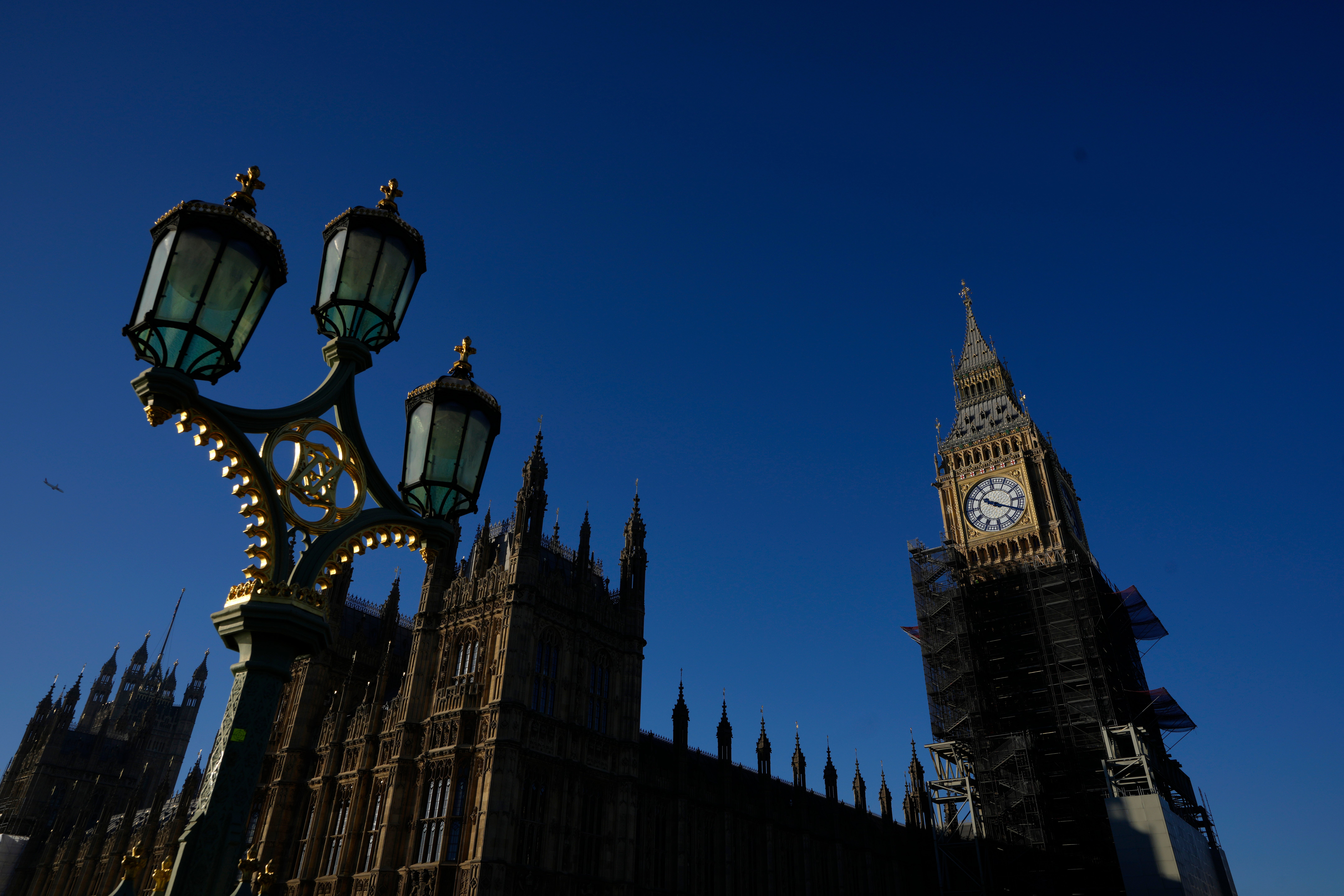UK resists calls to label China a threat following claims a Beijing spy worked in Parliament
The British government is resisting calls to label China a threat to the U.K.

Your support helps us to tell the story
From reproductive rights to climate change to Big Tech, The Independent is on the ground when the story is developing. Whether it's investigating the financials of Elon Musk's pro-Trump PAC or producing our latest documentary, 'The A Word', which shines a light on the American women fighting for reproductive rights, we know how important it is to parse out the facts from the messaging.
At such a critical moment in US history, we need reporters on the ground. Your donation allows us to keep sending journalists to speak to both sides of the story.
The Independent is trusted by Americans across the entire political spectrum. And unlike many other quality news outlets, we choose not to lock Americans out of our reporting and analysis with paywalls. We believe quality journalism should be available to everyone, paid for by those who can afford it.
Your support makes all the difference.The British government on Monday resisted calls to label China a threat to the U.K. following the revelation that a researcher in Parliament was arrested earlier this year on suspicion of spying for Beijing.
U.K. Business Secretary Kemi Badenoch said Britain should avoid calling China a “foe” or using language that could “escalate” tensions.
“China is a country that we do a lot of business with,” Badenoch told Sky News. “China is a country that is significant in terms of world economics. It sits on the U.N. Security Council. We certainly should not be describing China as a foe, but we can describe it as a challenge.”
Tensions between Britain and China have risen in recent years over accusations of economic subterfuge, human rights abuses and Beijing’s crackdown on civil liberties in the former British colony of Hong Kong.
Britain’s governing Conservatives are divided on how tough a line to take and on how much access Chinese firms should have to the U.K. economy. More hawkish Tories want Beijing declared a threat, rather than simply a challenge, the word Prime Minister Rishi Sunak has used.
Under Britain's new National Security Act, if China were officially labeled a threat, anyone working “at the direction” of Beijing or for a state-linked firm would have to register and disclose their activities or risk jail.
Conservative hawks renewed their calls for a tougher stance after the Metropolitan Police force confirmed over the weekend that a man in his 20s and a man in his 30s were arrested in March under the Official Secrets Act. Neither has been charged, and both were released on bail until October pending further inquiries.
The Sunday Times reported that the younger man was a parliamentary researcher who worked with senior Conservative Party lawmakers and held a pass that allowed full access to the Parliament buildings.
A Chinese Embassy statement called the allegations “completely fabricated and nothing but malicious slander.” China urges “relevant parties in the U.K. to stop their anti-China political manipulation,” the statement said.
Sunak chided Chinese Premier Li Qiang over the alleged espionage when the two met at a Group of 20 summit in India on Sunday. Sunak told British broadcasters in New Delhi that he’d expressed “my very strong concerns about any interference in our parliamentary democracy, which is obviously unacceptable.”
But he said it was important to engage with China rather than “carping from the sidelines.”
U.K. spy services have sounded ever-louder warnings about Beijing’s covert activities. In November, the head of the MI5 domestic intelligence agency, Ken McCallum, said “the activities of the Chinese Communist Party pose the most game-changing strategic challenge to the U.K.” Foreign intelligence chief Richard Moore of MI6 said in July that China was his agency’s “single most important strategic focus.”
In January 2022, MI5 issued a rare public alert, saying a London-based lawyer was trying to “covertly interfere in U.K. politics” on behalf of the Chinese Communist Party. The agency alleged attorney Christine Lee was acting in coordination with the Chinese ruling party’s United Front Work Department, an organization known to exert Chinese influence abroad.
Alex Younger, the former chief of British foreign intelligence agency MI6, said the U.K.'s relationship with China is complicated.
“We’ve got to find ways of engaging with it, and find ways of cooperating with it in important areas like climate change, and sometimes we have to be absolutely prepared to confront it when we believe that our security interests are threatened,” Younger told the BBC.
“In my experience, just being nice to them doesn’t get you very far,” he added.